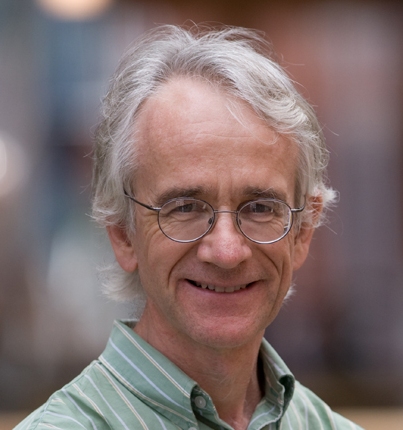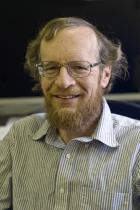21 May 2010
Climate Science: Skepticism, Transparency, and Multiple Lines of Evidence
Posted by Michael McFadden
As attacks against climate scientists have intensified, the scientific community, which usually prefers to stay far away from political controversy, has started to fight back.
Amidst the polarizing debate, some leading scientists involved in climate change studies spoke up at a May 11 Capitol Hill briefing about the knowns and unknowns in climate science.
Warren Washington is former head of climate change research for the National Center for Atmospheric Research (Boulder, CO). He has been working in climate research for the past 35 years. Washington emphasized the difference between new scientific evidence that may reveal some flaw in current understanding of climate change, and blind skepticism.
“Skepticism without specifics or alternate hypotheses or facts is worthless. It’s not really advancing the science,” Washington said.
Washington was joined in the briefing, entitled “Climate Science – Key Questions and Answers”, by Richard Smith, a professor of statistics at the University of North Carolina at Chapel Hill, and Richard Alley, a professor in the Department of Geosciences at Pennsylvania State University. (Each of the three panelists made the point that he was speaking for himself and not the institution he works for.)
AAAS, AGU, and 11 other scientific organizations offered the briefing to make it clear to legislators or their staff members, who were presumably in the audience, what is well-established scientific knowledge about climate change, and where uncertainties remain. The scientists who spoke also highlighted some steps the scientific community is taking to make the scientific process more transparent and better at avoiding errors.
Richard Smith agreed with Washington that climate change skeptics with sound scientific results need to formally enter the scientific discussion.
Upon closer inspection, most skeptics’ findings would fall apart against the full weight of the scientific literature, said Smith. But challenging results that are published in scientific journals will contribute to the field, so climate skeptics should not resort to blogs or other unofficial outlets for presenting research findings.
Smith said he regards climate scientists as extraordinarily open about making their data publicly available. He also said there’s room for improvement —for instance, by doing a better job of providing raw data so that other scientists can double-check their work.
Even in this, there are hurdles to overcome. For example, in climate research, some of the data sets can take up petabytes (millions of billions of bytes) or even exabytes (millions of trillion of bytes) of storage—a hefty technical challenge for anyone trying to share that much information. (Just one exabyte is enough to fill four million home-computer hard drives.)
Richard Alley boiled down what is well known by scientists regarding climate change into a quick summary.
Citing multiple lines of evidence as he went along, Alley said “we have high scientific confidence that we are raising CO2, and that this primarily comes from our burning of fossil fuels… CO2 is rising, it is blocking the radiation going out to space. That’s trapped energy, and that leads to warming.”
The lines of evidence range from ice cores and satellite measurements to glacier recession and sea temperature measurements. Alley said we are already starting to see the effects of climate change.
“Various groups… have reached the same conclusion, which is that there is warming,” he said.
Conversations uncovered in hacked emails of climate researchers at the University of East Anglia do nothing to degrade our firm understanding of the science, he added.
“The results do not depend on one fact, one data set, one investigator, one anything.”
Alley added that the evidence for human induced climate change doesn’t just depend on the known effects of CO2 and other greenhouse gases – it also relies on what scientists have been able to rule out.
“We, the whole climate community, have been spending 30 years trying to find a way out of this. Could the sun be doing it? Could the volcanoes be doing it? Could the cosmic rays be doing it?” said Alley.
“We can’t find anything else.”
The panelists’ slideshow presentations can be accessed below:
– Colin Schultz, AGU science writer













 GeoSpace is a blog on Earth and space science, managed by AGU’s Public Information staff. The blog features posts by AGU writers and guest contributors on all sorts of relevant science topics, but with a focus on new research and geo and space sciences-related stories that are currently in the news.
GeoSpace is a blog on Earth and space science, managed by AGU’s Public Information staff. The blog features posts by AGU writers and guest contributors on all sorts of relevant science topics, but with a focus on new research and geo and space sciences-related stories that are currently in the news.
Are the specialists convinced that by reduchtein of human CO2 emissions the warming will be reversed or at least stopped?
Climate change is not understood in totality and linking man and his activities to this natural phenomenon is just making the entire understanding of the simple subject of climate change into a very complicated mystery which actually is very confusing. In the first sight the logic behind warming and CO2 increase seems quiet convincing and one actually starts believing in this conviction. But this is not the real truth Man is too small to have any impact of global scale on sustainable basis when we are talking about climate change. Man owes his evolution,diversification and proliferation in present times to global warming phenomenon,global cooling alone will lead to his extinction.
Global Warming and cooling cycles have to be understood in order to understand the climate change cycles in totality.Understanding of one phenomenon in isolation is leading us to the present confused scenario about climate change.
Imagine living in Antartica or Artic for the rest of your life,that is what it is to be living in global cooling times.Enjoy global warming before it is too late.Warming is the best part of the climate cycle to be on this planet earth.Like rose every beautiful thing comes with thorns and warming phenomenon is no exception. Yes glaciers melt,floods happen, sea level rises,cyclones become part of the life.But all these can be well tackled if proper geological studies are conducted at the time of constructing habitations to meet these eventualities in a better and sustainable way.